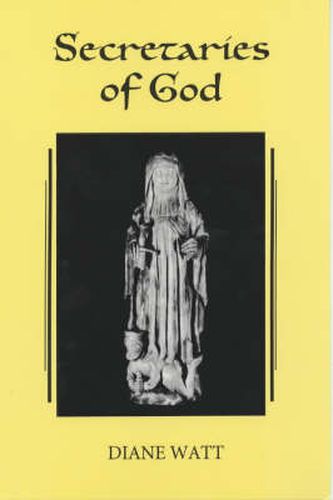Readings Newsletter
Become a Readings Member to make your shopping experience even easier.
Sign in or sign up for free!
You’re not far away from qualifying for FREE standard shipping within Australia
You’ve qualified for FREE standard shipping within Australia
The cart is loading…






Diane Watt sets aside the conventional hiatus between the medieval and early modern periods in her study of women’s prophecy, following the female experience from medieval sainthood to radical Protestantism. The English women prophets and visionaries whose voices are recovered here all lived between the twelfth and the seventeenth centuries and claimed, through the medium of trances and eucharistic piety, to speak for God. They include Margery Kempe and the medieval visionaries, Elizabeth Barton (the Holy Maid of Kent), the Reformation martyr Anne Askew and other godly women described in John Foxe’s Acts and Monuments, and Lady Eleanor Davies as an example of a woman prophet of the Civil War. The strategies women devised to be heard and read are exposed, showing that through prophecy they were often able to intervene in the religious and political discourse of the their times: the role of God’s secretary gave them the opportunity to act and speak autonomously and publicly. Winner of Foster Watson Memorial Gift for 1998. DIANE WATT is Professor of English at the University of Wales, Aberystwyth.
$9.00 standard shipping within Australia
FREE standard shipping within Australia for orders over $100.00
Express & International shipping calculated at checkout
Diane Watt sets aside the conventional hiatus between the medieval and early modern periods in her study of women’s prophecy, following the female experience from medieval sainthood to radical Protestantism. The English women prophets and visionaries whose voices are recovered here all lived between the twelfth and the seventeenth centuries and claimed, through the medium of trances and eucharistic piety, to speak for God. They include Margery Kempe and the medieval visionaries, Elizabeth Barton (the Holy Maid of Kent), the Reformation martyr Anne Askew and other godly women described in John Foxe’s Acts and Monuments, and Lady Eleanor Davies as an example of a woman prophet of the Civil War. The strategies women devised to be heard and read are exposed, showing that through prophecy they were often able to intervene in the religious and political discourse of the their times: the role of God’s secretary gave them the opportunity to act and speak autonomously and publicly. Winner of Foster Watson Memorial Gift for 1998. DIANE WATT is Professor of English at the University of Wales, Aberystwyth.